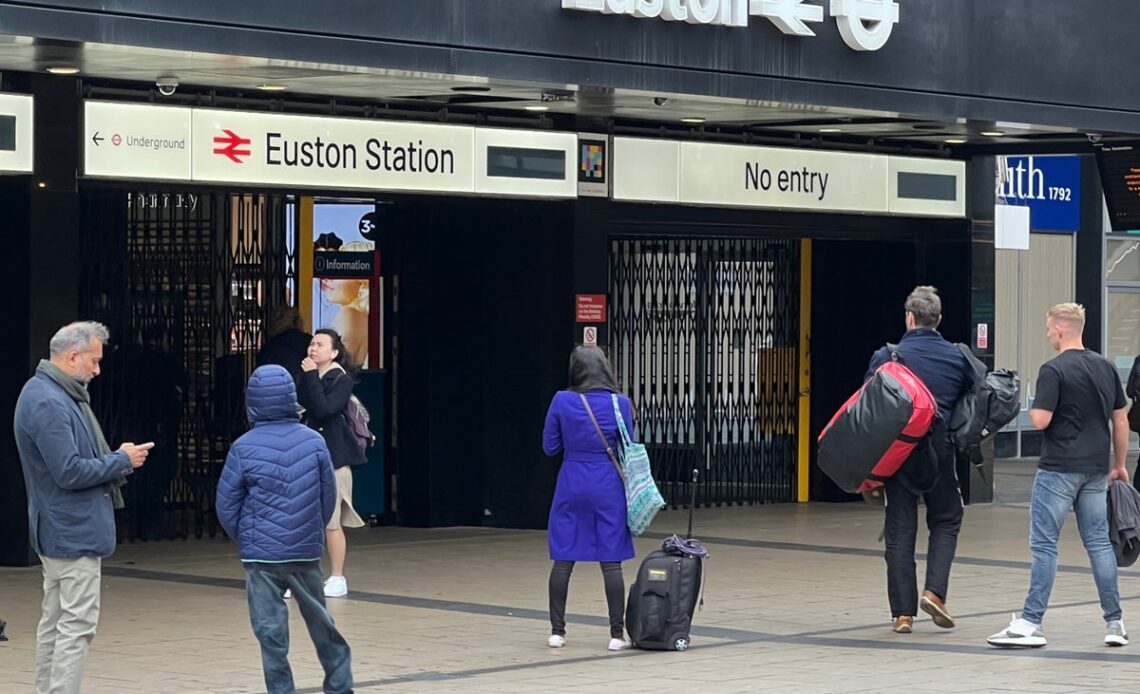Members of the train drivers’ union, Aslef, will walk out at 11 train operators on Saturday 26 November. The strike will trigger widespread cancellations – affecting Rugby fans heading for the last of the autumn internationals in Cardiff and Twickenham, and potentially millions more prospective travellers.
It will be the fifth national strike by train drivers, in a year that has also seen eight days of national strikes by the RMT union.
Rail passengers in Britain are enduring the longest and most damaging series of strikes since the 1980s.
Industrial action by rail workers has been taking place since June.
Members of the RMT union working for Network Rail and 14 train operators called a strike for three days in early November. Even though the walk-outs were called off a few hours before they were due to begin, thousands of trains were cancelled over a spell of a week.
The RMT has conducted a ballot for a fresh mandate for future rail stoppages. On a turn-out of 70 per cent, 92 per cent of members voted for more strikes.
Over 40,000 RMT members across Network Rail and 14 train operating companies will strike on 13, 14, 16 and 17 December and on January 3,4,6 and 7. There will also be an overtime ban across the railways from 18 December until 2 January, meaning the RMT will be taking industrial action for four weeks.
Regionally, a range of industrial action from overtime bans to local walk-outs will cause further disruption.
What are the strikes about?
There are multiple disputes involving many employers:
- Network Rail – the infrastructure provider, running the tracks, signalling and some large stations
- More than a dozen train operators, who are contracted by the Department for Transport (DfT) to run a specified schedule of services.
Four unions are involved:
- RMT, the main rail union
- Aslef, representing train drivers
- Transport Salaried Staffs’ Association (TSSA), the union for white-collar staff in the transport industry
- Unite, representing some grades in some train operators
But key elements are common to all the disputes:
- Pay, which the unions say should take into account the current high inflation
- Jobs, and in particular the prospect of compulsory redundancies
- Working conditions – with the unions determined to extract a premium from any productivity improvements
When is the next national strike?
On Saturday 26 November train drivers…
Click Here to Read the Full Original Article at The Independent Travel…
